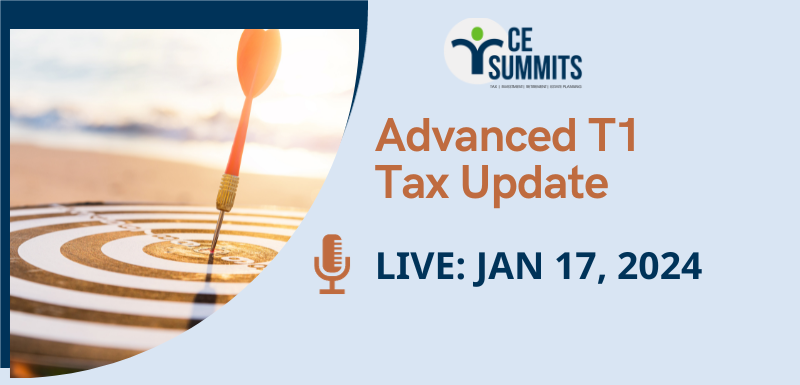Last updated: November 30 2023
Short Term Rentals: Are New Moves Good Moves?

Evelyn Jacks
The federal government wants to accelerate the supply of long term residential housing and one way they intend to do this is to “crack down” on non-compliant short term rental owners and deny their income tax deductions when filing a tax return, starting January 1, 2024, according to proposals in the Fall Economic Statement released November 21, 2023. What exactly will this mean in practice for taxpayers and their advisors in 2023; will it actually work to meet goals, and how will this affect the integrity of the tax system overall?
Denial of income tax expenses. The new proposals come with a swift denial of rental income expenses, starting January 1, 2024 for owners of short-term rental units that break local rules for owning them. Denied will be costs such as mortgage interest, internet and cable costs, property taxes and insurance, condo fees and capital cost allowances (CCA) which often reduced rental income to zero. (However, there is an opportunity to recapture over-deducted CCA down the road if asset values increase – it will be interesting to see how that is adjusted if CCA is denied).
Therefore, a most important question for taxpayers and their advisors, starting in the 2024 tax filing year, after “do you own a short-term rental?”, will be “Do you own a “non-compliant” short-term rental?” Advisors will need to be able to explain this.
Specifically a short-term rental is defined in the Excise Tax Act as one in which rent is collected for a period of occupancy of less than one month for use as a place of residence or lodging for a continuous period which may be on a daily or weekly basis. However, effective April 23, 1996, short-term accommodation does not include occupancy in a residential complex or residential unit under a timeshare arrangement or if it is included in the part of a tour package.
A non-compliant short term rental is one that is not compliant with provincial or municipal licensing, permitting, or registration requirements or one that is operating in provinces and municipalities that have prohibited short-term rentals.
The November 21, 2023 proposals are meant to boost the steps already taken by some provinces and municipalities across Canada which have restricted or banned short-term rentals. The steps the government has proposed to be implemented are the following:
- To introduce legislation that will deny income tax deductions for expenses incurred to earn short-term rental income in provinces or municipalities that have prohibited or restricted short-term rentals. It is the government’s hope that by removing the ability to write off expenses such as interest, utilities, condo fees, property taxes, insurance, etc. that owners of these properties will return them to long-term rentals. This will take effect after January 1, 2024.
- To reward municipalities with strict regulatory regimes to return short-term rentals back to long-term rentals with financial assistance. The proposal calls for $50 million to be distributed over three years to municipalities that can show their efforts have had a significant impact at returning short-term rentals to long-term rentals starting in the 2024/25 fiscal year.
So will this measure work to increase residential supplies, especially in cities like Toronto, Montreal and Vancouver where the government estimates? Only time will tell. But it is quite possible that revenues will drop for owners of these properties who convert them to long-term residential rentals. For example, the Fall Economic Report provides and example to suggest that at $250 a night – fully booked for a year – an owner could make $120,000 in rental income. That would be equivalent to $10,000 a month in rent. It is highly unlikely that many of the short-term rental properties would attract the same revenues on a long term rental basis.
According to Air BnB policy lead Nathan Rotman, interviewed last week by BNN Bloomberg, the new regulations for short-term rentals will impact only a small number of Airbnb users. He noted the company represents less than one per cent of the overall housing stock in Canada and that in major cities, Airbnb is restricted to operating in a host’s primary residence only. The spokesperson took issue with the way the government has vilified the activity, noting that they support compliant hosting.
It begs several questions;
- Are these properties places long term renters want to live in?
- Will these owners sell to get out of the market to new owners, circumventing the needs of the rental market?
- Will new owners benefit from a bigger supply of available housing, and lower pricing, as a result?
- There is clearly a demand for short term rentals – where will that demand go? Will non-compliant owners, who are already participating in the underground economy at a provincial or municipal level, simply increase the price?
- For Canadians making significant money off their short term rental investments, will the new rules simply drive investments in foreign properties?For example, the new short term rental restrictions on tax deductions will not apply to rental income from U.S. owned properties.
Make a difference. These proposals add more complexity to the Canadian Income Tax Act. Tax and financial advisors will want to advise their clients about this change as part of their year end tax planning conversations and re-evaluate net worth statements in 2024, as the trickle down effect of these new rules impact the value of investments in residential properties.
Additional Educational Resources:

